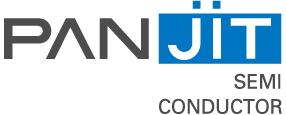

PANJIT′s ESG Corporate Sustainability Development Committee was established on March 1, 2022. To demonstrate our determination of sustainable development and continue to improve the supervision
and management of sustainability issues, it was approved by the board of directors on January 26, 2024 to establish the Sustainable Development Committee, a functional committee under the board of
directors. The original ESG Corporate Sustainability Development Committee was adjusted and renamed ESG Promotion Office and maintains the original establishment. The Sustainability Development
Committee is convened by the chairman of the board of directors and all independent directors serve as the committee members. By more closely linking the corporate sustainable operations with board
governance, we improve our sustainable development strategies and continue to promote sustainable governance culture for the creation of long-term corporate value.
The Sustainability Development Committee is responsible for setting and developing the Company′s sustainability strategies, goals, and related management approaches, leading the sustainability team to propose
and implement specific promotion plans, and continuing to deepen and implement the Company′s sustainable development vision. The committee meets at least once a year, and reports to the board of directors
on the implementation of ESG-related issues and sustainable information results. The board of directors makes suggestions for the implementation of the management approaches, strategies, and formulation of goals and supervises the implementation of measures. PANJIT communicates with the board of directors on key major events, including material transaction proposals, ESG-related implementation status, and matters stipulated by the competent authorities. In 2024, a total of 35 proposals were resolved by the board of directors, and a total of 4 reporting matters concerning ESG-related issues were reported.




The president serves as the convener of the ESG Promotion Office, and under which are the Environment Sustainability Steering Group, Social Responsibility Steering Group and Sustainable Governance Steering Group that are in charge of the implementation of corporate sustainable development plans and the resolutions of the Sustainability Development Committee. The Executive Secretary and the heads of each promotion team report the sustainable development results to the president at least once a year, and the president will then summarize and report to the Sustainability Development Committee, which will then be reported to the board of directors on a yearly basis. We will continue to work for the achievement of ESG goals and implement ESG strategies and organize ESG development sustainably. The ESG Promotion Office framework and the sustainable operation responsibilities are as follows.





Stakeholder Communication


Stakeholder Communication Channels and Results


Stakeholder Communication Channels

Our stakeholders can continue to follow PANJIT′s updates via social media and give us valuable opinions and suggestions.

Grievance and Reporting Channels

PANJIT has established the “Measures for Handling Stakeholders′ Suggestions and Complaints” and “Whistleblower Protection and Anti-Retaliation Management Procedures” to establish a fair and transparent system for the protection of the stakeholders′ rights and interests. Our stakeholders can propose any suggestions or file complaints anonymously concerning human rights, products, environment, and business governance through the communication channels on the company′ s official website. The Audit Committee will assign dedicated personnel for handling and the principle of confidentiality is adhered to protect the whistleblower from being retaliated or punished. In addition, PANJIT also established the Corporate Social Responsibility Communication Management Procedures in the RBA System, specifying the management mechanism for employee complaints, and there is a dedicated unit to receive and handle all the complaint cases, thereby ensuring that all employees can be able to voice their concerns in a fair and transparent environment. In 2024, there were no employee suggestion cases and no complaint cases.

Ethics and Integrity

The core value of PANJIT is integrity management, and we have been committed to improving transparency and building a credible and responsible corporate image. We have formulated the Corporate Governance Best Practice Principles, Ethical Corporate Management Best Practice Principles, Procedures for Ethical Management and Guidelines for Conduct, and Codes of Ethical Conduct, established an internal control and supervision mechanism to actively prevent dishonest conduct. In addition, the Integrity Management Promotion Team was also established under the board of directors to report to the board of directors its integrity management policies, plans for dishonest conduct prevention, and the implementation of supervision at least once a year. All the directors of the Company are required to sign a Statement of Code of Ethics on the day they take office, which stipulates that the directors shall not engage in any dishonest, unlawful, or breach of fiduciary duty behavior during their official term.
The company has established an assessment mechanism for the risk of dishonest conduct.
When preparing the annual audit plans, the level of impact of the risk of dishonest conduct is also included in the assessment items to make regular analysis and evaluation of the business activities with higher risks of dishonest conduct within the scope of business, and the annual audit operations are planned based on the risk assessment results. It is aimed to prevent conducts with potentially higher risks of dishonesty.
To implement integrity management, PANJIT not only evaluates the integrity records of its suppliers, but also requires these suppliers to sign a “Supplier Anti-corruption and Antibribery Commitment”. In addition, the clause on integrity and ethics has also been added to the contract terms, specifying the requirements for the adherence to integrity and compliance with ethics in business activities. Moreover, the company also requires personnel related to business activities with higher risks of dishonesty (such as sales representative and purchasing agent) to sign the Anti-corruption and Anti-bribery Commitment, and publicity is also conducted through announcements, education and training as well as the bulletin boards to ensure the personnel abide by ethics and policies. The company also provides education and training on corporate social responsibility and integrity management to new employees in the orientation to demonstrate the company’s determination in integrity management.
Furthermore, the company has also established the Measures for the Management of Stakeholders’ Suggestions and Complaints. A service contact for stakeholders’ suggestions and complaints has also been set up on the company’s official website as the grievance channel for stakeholders when their rights and interests are infringed. The handling status of the stakeholders’ suggestions and complaints is also reported to the Audit Committee on a quarterly basis. Meanwhile, other internal reporting channels such as the contact, physical mailbox, and email boxes have been set up in accordance with the Ethical Management
Procedures to maintain the rights and interests of the stakeholders and the company. All the reported incidents are handled, investigated and recorded by a dedicated unit based on the principle of confidentiality. When the incident is found true after investigation, measures and legal actions including the termination of the business relationship or employment contracts would be implemented based on the severity of the case and in accordance with the Work Rules.
The Company conducts internal online education and training on “Prohibition of Insider Trading” for all directors and managers every year. In 2024, the teaching objects were extended to managers and higher-level position holders. The anti-corruption communication channels and results in 2024 are shown as follows. Except for education and training on “Prohibition of Insider Trading” and “Anti-corruption”, the ratio of other communication/ training reached 100%.
The Company will continue to make insider trading prevention training materials available on the online learning platform to allow employees to complete the training according to their schedule.
Since some new hires could not make it to complete the anti-corruption education and training by the end of 2024, we will continue to strengthen anti-corruption education and training and urge all personnel to attend the courses, and we will continue to move toward the goal of reaching full (100%) coverage in anti-corruption education and training. In 2024, the company did not have any relevant corruption incidents, and was not involved in any legal incidents or litigations involving anti-competitive behavior, antitrust, and monopolistic behavior.

Risk Outcomes and Response Measures

To fulfill the company’s obligations for sustainable governance and to grasp the internal and external potential risks of operations, the board of directors approved the Risk Management Measures in 2021 to define various risks according to the company’s overall operating policy and establish a mechanism for early identification, accurate measurement, effective supervision and strict control of risk management.
PANJIT prevents possible losses within the acceptable range and continuously adjusts and improves the best risk management practices in accordance with changes in the internal and external environment to protect the interests of the employees, shareholders, partners, and customers, increase the company value, and achieve the principles of optimization of the resource allocation of the company. The scope of risk evaluation includes but is not limited to market risk, operational risk, financial risk, hazard risk, or other risks that may cause significant losses to the company.
In addition, after the Company referred to domestic and international standards and specifications (GRI, SASB, TCFD), internal and external stakeholder communication issues, and integration of the Company’s internal organizational information, the Company’s overall operating policy is used to identify various risks. The Company continues to make adjustments and improvements for the best risk management strategies based on the internal and external environmental changes to protect the interests of our employees, shareholders, partners, and customers so as to increase the value of the Company.

